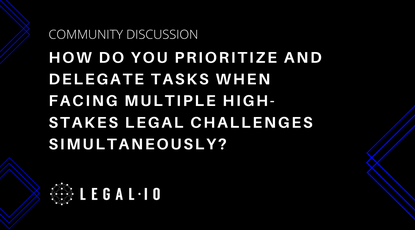The legal industry has faced a labyrinth of expectations versus reality when it comes to return-to-office strategies and office attendance policies. However, the 2024 Law Firm Office Attendance Policies Report by the Thomson Reuters Institute reveals a rather unexpected reality: legal professionals and law firms have embraced their new office attendance policies with enthusiasm.
The Progression of Hybrid Work
Initially, there was skepticism and intense debate about how many days lawyers should be in the office, the flexibility of these policies, and the degree of enforcement. Many lawyers were not excited about a return to the old world of in-office work five days per week.
The majority of law firms have now adopted a hybrid approach to office attendance, offering high flexibility. Lawyers have responded positively to this shift, going beyond their firms’ requirements. Enforcement of office attendance policies has been generally lax, resulting in widespread support from legal professionals.
Laura Terrell, an Executive Coach/Consultant and former BigLaw partner said, “Firms made the transition more gradual for people, and there are still firms where people would tell you the requirement is three days or four days, but they’re allowed to be more flexible, and as long as they have a couple days they’re not required to be in, they’re fine with that.”
BigLaw’s Enthusiastic Embrace
According to the Thomson Reuters survey of 350+ law firm employees across 100+ large law firms, more than half (57%) expressed satisfaction with their office attendance policies, while 29% remained neutral. Only 13% reported dissatisfaction. BigLaw firms have successfully transitioned from pandemic-era remote work policies to hybrid office attendance policies. Notably, some lawyers are voluntarily attending the office more often than required, demonstrating an unexpected level of engagement.
“What we found was, the majority of law firms aren’t forcing people back to the office full time (and are) not being particularly strident in their enforcement, and lawyers are saying, ‘Oh, this strikes a good balance,'” said Bill Josten, Strategic Content Manager for Thomson Reuters.
Flexibility and Light-Touch Enforcement
BigLaw consultants attribute this acceptance to the overall flexibility and “light-touch” enforcement of these policies. Firms have made gradual transitions, allowing employees to adapt. While most firms require at least three days of office attendance per week, 46% of respondents are showing up four or more days. The balance between in-person collaboration and remote work has struck a chord with legal professionals.
37% of lawyers voluntarily attend the office more often than required. This trend is particularly pronounced among Junior Associates who seek mentorship and networking opportunities. The report suggests that the office environment fosters collaboration and relationship-building, which contributes to professional growth.
The Challenges and Benefits of Hybrid Models
Despite the success of hybrid work policies, some anticipated benefits have not fully materialized. If firms expected a productivity boost from in-office work, the evidence is mixed at best. However, the industry’s overall satisfaction suggests that the benefits extend beyond mere productivity metrics.
Lawyers Appreciate Various Benefits
-
Flexibility: Lawyers appreciate the ability to work remotely on certain days, allowing for a better work-life balance.
-
Innovation: The hybrid model fuels innovation through frequent in-person collaboration.
-
Professional Development: Lawyers can engage in meaningful interactions while maintaining flexibility.
BigLaw’s embrace of hybrid work represents a definite change in attitude. Firms have found a balance that satisfies both lawyers and firm leaders. As we move forward, the challenge lies in maintaining this delicate equilibrium while reaping the benefits of a more flexible and dynamic work environment.









